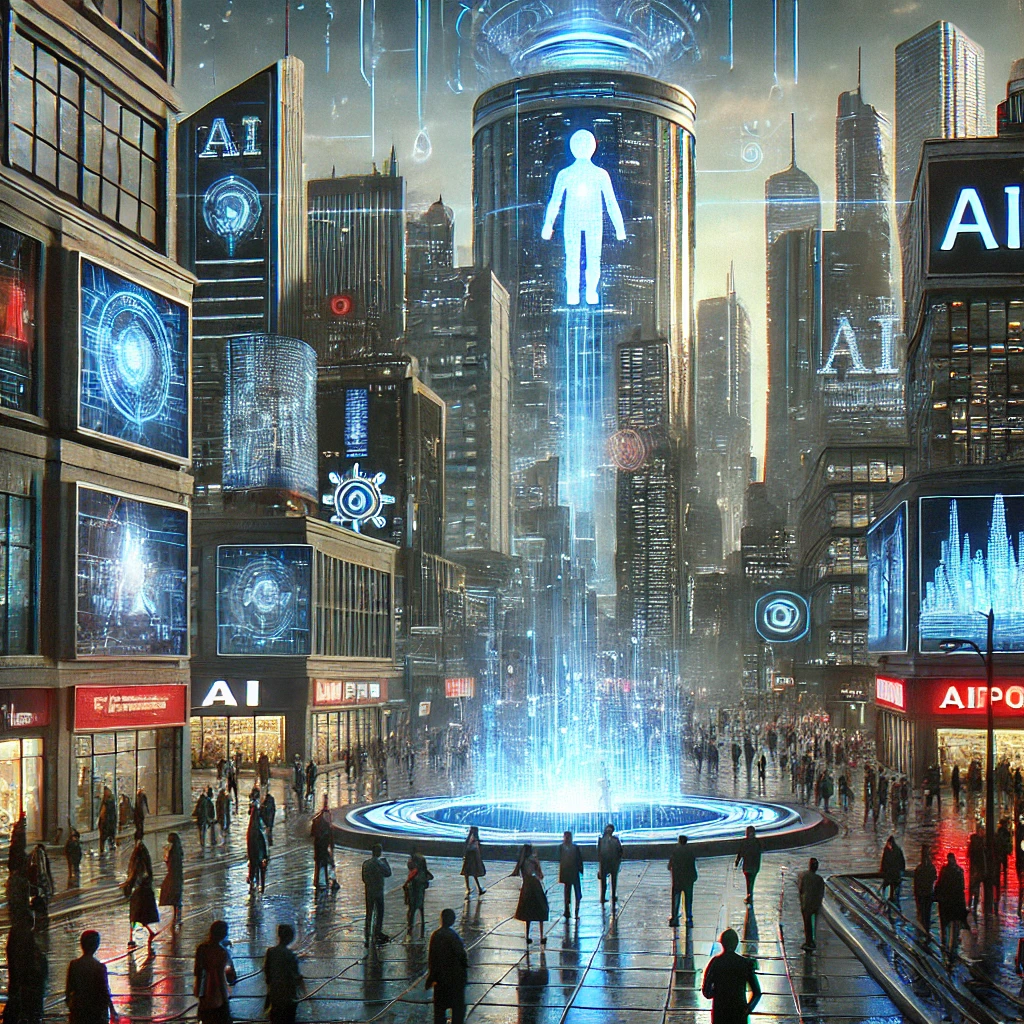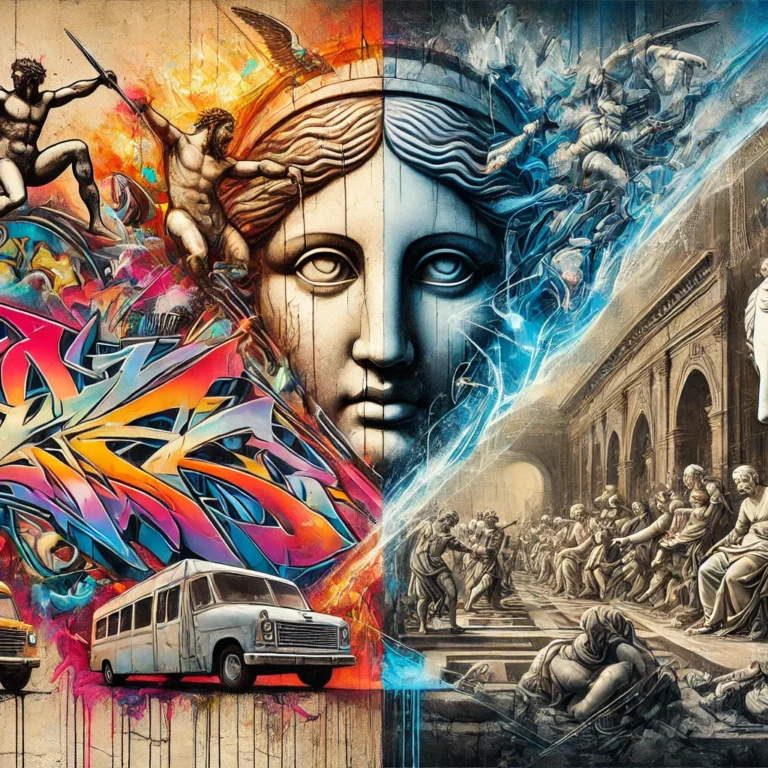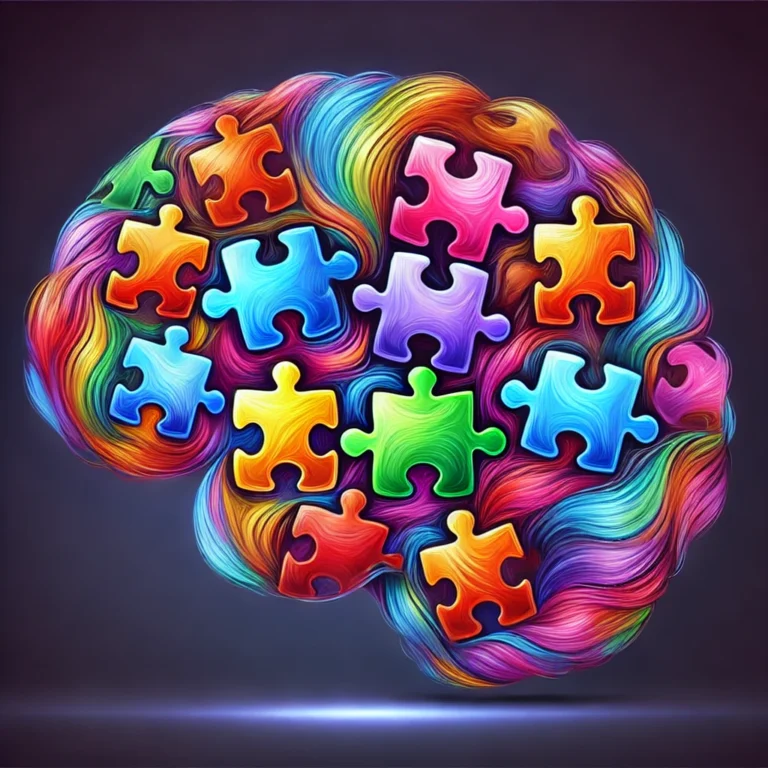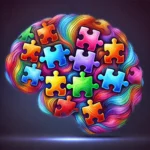Max Weber’s concept of the iron cage describes the rationalisation and bureaucratisation of society, where individuals become trapped in an impersonal, efficiency-driven system (Weber, 1922)1. He argued that as societies modernised, they would become increasingly dominated by rules, hierarchies, and impersonal administrative structures, prioritising efficiency over human freedom.
Karl Marx’s theory of alienation expands on this critique, focusing on how capitalism severs individuals from meaningful labour, reducing them to mere cogs in an economic machine (Marx, 1867)2. Under capitalism, he contended, workers lose control over their labour, leading to economic dependency and social disempowerment—an existence shaped not just by bureaucratic structures but by economic forces that limit individual agency.
Meanwhile, George Orwell’s dystopian vision in 1984 (Orwell, 1949)3 offers a different but complementary perspective, imagining a world where surveillance and ideological control permeate every aspect of life. Unlike Weber’s bureaucratic entrapment or Marx’s economic alienation, Orwell warns of a system where power operates through continuous observation, manipulation, and psychological coercion.
Each of these theorists sought to explain the structures of power and control in society, yet the modern world has evolved in ways that both confirm and challenge their predictions. While elements of their theories remain relevant, contemporary governance, digital capitalism, and algorithmic surveillance have introduced new mechanisms of control that none of them fully anticipated.
Bureaucracy, Deregulation, and Digital Control
Bureaucracy has long been viewed as both a tool of governance and a potential mechanism of control. Weber foresaw that rationalisation would make institutions more efficient while simultaneously restricting individual autonomy, arguing that bureaucracy, once set in motion, would continue expanding and entrapping individuals in its logic (Weber, 1930)4. However, recent political developments, such as the UK government’s decision to abolish NHS England and bring it under direct political control (BBC, 2025)5, suggest a shift—not away from bureaucracy, but toward a more centralised form of state-managed governance.
Graeber (2015)6 argues that despite rhetoric about reducing bureaucracy, modern states often shift bureaucratic burdens rather than eliminate them. Instead of freeing individuals from administrative complexity, deregulation frequently results in the recentralisation of essential services, increasing inefficiencies in new ways.
The UK's government’s move to dismantle NHS England while simultaneously pushing for AI-driven efficiencies in the civil service (The Times, 2025)7 reinforces this paradox: while some bureaucracies are being cut, others are being digitised and automated, limiting human oversight and accountability. This restructuring raises a contradiction: on one hand, centralisation suggests a move away from technocratic quangos toward political oversight. On the other, the integration of AI in civil service functions suggests that decision-making is shifting away from human administration altogether. However, this may not be merely paradoxical—it could reflect a strategic attempt to consolidate political authority while ensuring long-term administrative efficiency through AI automation.
While right-wing leaders such as Donald Trump, Giorgia Meloni, Javier Milei, and Narendra Modi have pursued deregulation and privatisation, left-leaning governments have also embraced digital governance, expanding surveillance and automated decision-making under the guise of modernisation and security. However, rather than leading to greater personal freedom, this has often resulted in the transfer of control from the state to a hybrid system of political intervention and algorithmic decision-making.
The pursuit of efficiency through deregulation and digital governance has led to weakened labour protections, diminished consumer rights, and increasingly AI-managed public services. Morozov (2013)8 critiques this techno-solutionist mindset, arguing that states and corporations justify automation and efficiency measures as means of reducing inefficiency while actually increasing centralised control over individuals. The UK’s efforts to digitise government services, cut administrative staff, and integrate AI into civil service functions (The Times, 2025)7 exemplify this shift—one that does not eliminate bureaucracy but simply moves it into a less visible, less accountable space.
While the UK government is often positioned as an antithesis to Trump-style governance, its approach to public services mirrors the broader global trend of prioritising economic rationalisation over individual protections. The rhetoric of removing "checkers and blockers" in government, which the government has employed (The Times, 2025)9, echoes populist critiques of bureaucracy similar to those seen in Trump’s "deep state" narrative. While the Government’s rhetoric on reducing bureaucracy appears pragmatic, its framing—blaming ‘checkers and blockers’—mirrors right-wing populist narratives, raising questions about whether this is a mere rebranding of state control or a genuine structural transformation.
Whilst we are aware of the potential benefits to society from AI, including advancements in healthcare, education, and administrative efficiency, these developments must be balanced against concerns over reduced accountability, the centralisation of bureaucratic control under political influence, and the erosion of public sector protections.
However, in contrast, some governments, such as those in the European Union, have sought to regulate digital markets, implement AI oversight, and establish privacy laws like GDPR to curb unchecked corporate power. Governments, once the primary enforcers of bureaucratic control, are increasingly handing power over to corporations, tech giants, and automated decision-making systems. Weber’s iron cage envisioned individuals trapped by rigid bureaucratic rules, but today, many find themselves caught in a web of data-driven governance, corporate algorithms, and AI-managed economies. Srnicek (2016)10 describes how digital platforms now serve as economic gatekeepers, controlling labour markets, access to goods, and even social interactions through algorithmic governance. Rather than acting as neutral facilitators, these platforms dictate economic activity, shaping not just transactions but broader social hierarchies. This evolution of bureaucratic control moves beyond Weber’s concept of the iron cage, introducing a new digital dependency that aligns with contemporary neofeudalism.
From State Oppression to Corporate and Digital Domination
Marx’s theory of alienation and Orwell’s vision of authoritarian surveillance painted grim pictures of centralised control. However, modern society presents a paradox: while traditional bureaucratic and state-led oppression has in some ways weakened, new forms of control have emerged through both private enterprise and direct government intervention.
The UK’s latest reforms highlight this duality: the abolition of NHS England centralises decision-making, but at the same time, civil service job cuts and AI integration shift administrative work from humans to algorithms (BBC, 2024). The rise of technology magnates such as Elon Musk, Mark Zuckerberg, and Jeff Bezos represents another shift in power, moving away from democratic oversight toward corporate and algorithmic governance.
Musk’s ventures in space exploration, artificial intelligence, and social media demonstrate how technological innovation, when controlled by a small elite, can redefine governance. Zuboff’s (2019)11 concept of instrumentarian power highlights how digital platforms shape human behaviour through data collection and predictive analytics, operating beyond democratic oversight. The combination of AI-driven government reforms and increasing corporate control over digital life suggests a growing dependency on systems that neither citizens nor governments can fully control.
At the same time, divisive figures like Andrew Tate represent another form of cultural control. Their model of hyper-individualistic masculinity and financial dominance through deregulated online business and rejection of state-imposed norms reflect a shift from collective societal structures toward self-imposed submission to economic survivalism. Much like Orwell’s Newspeak restricted independent thought, this hyper-capitalist ideology limits critical thinking by glorifying financial success above all else, conditioning individuals to accept exploitation as personal empowerment.
Where Weber, Marx, and Orwell Fall Short
Weber’s iron cage assumed that bureaucratic rationalisation would remain a primary mechanism of control, but in the modern world, bureaucracy is being replaced by digital and algorithmic governance. Instead of rigid paperwork and government oversight, individuals now face unseen algorithms dictating their economic opportunities, social interactions, and even political exposure. Han (2017)12 argues that modern surveillance operates less through force and more through self-discipline and voluntary digital submission, where individuals internalize the logic of algorithmic control.
Marx predicted capitalist alienation, yet the digital gig economy has introduced a new level of labour exploitation that even he did not fully anticipate. While Marx believed that industrial capitalism would result in workers becoming estranged from their labour and the means of production (Marx, 1844)13, today’s digital labourers are not just alienated but also subjected to algorithmic surveillance, performance tracking, and unpredictable work conditions dictated by automated systems.
This evolution extends beyond traditional economic alienation. Gig workers, civil servants under AI oversight, and digital platform users now experience a dual alienation—not only from their labour but also from personal agency itself. Unlike the industrial worker who could at least identify the factory owner, today’s workforce is monitored and disciplined by unseen algorithms, reducing autonomy through predictive analytics and performance-based nudging. This aligns with Han’s (2017) argument that digital governance does not require external oppression but instead fosters a climate of self-discipline, where individuals willingly conform to algorithmic standards out of fear of exclusion or economic obsolescence.
Orwell’s vision of state surveillance remains relevant, but it has taken on different forms across political systems. The UK’s recent expansion of digital surveillance powers exemplifies how democratic governments are increasingly engaging in mass monitoring. While ostensibly designed for national security and law enforcement, these powers raise concerns about the erosion of civil liberties and the normalisation of state-driven surveillance. This challenges the perception that only authoritarian states engage in mass surveillance, reinforcing the idea that both governments and private corporations are converging toward a system of ubiquitous digital oversight.
In some authoritarian states, centralised surveillance remains a primary control mechanism, as seen in China’s social credit system. Meanwhile, in democratic nations, surveillance is increasingly privatised, where companies rather than governments dictate information flow and data control. Instead, digital surveillance is carried out by tech companies, data brokers, and social media platforms. Governments may impose restrictions, but it is corporate entities that now determine the flow of information, shaping political discourse and influencing public opinion through opaque algorithms and engagement-driven content prioritisation.
Neofeudalism: The Digital Lords and Data Serfs
Kotkin (2020)14 describes how modern society has entered an era of digital neofeudalism, where economic and social power is concentrated in a small class of technological elites who operate much like medieval lords, controlling access to digital resources, employment, and communication. However, recent political shifts suggest that neofeudalism is not solely a corporate phenomenon—governments are actively restructuring bureaucracies in ways that reinforce power hierarchies.
Similarly, Lanier (2013)15 argues that individuals have been reduced to digital serfs, generating data and content that enriches tech monopolies while lacking ownership over their online presence. Instead of a centralised bureaucracy, power is now distributed among digital landlords, as Varoufakis (2021)16 describes. The UK’s recent push to cut regulatory oversight while simultaneously expanding AI-driven governance reinforces the idea that political power and economic dependency are converging in new ways.
Modern AI governance increasingly fuses two historically distinct models of control: neofeudal economic dependency and Orwellian state oversight. While digital platforms condition behaviour through economic incentives, political actors deploy AI-driven surveillance to shape governance and public perception. While economic neofeudalism and Orwellian surveillance serve distinct functions, AI governance increasingly merges these forms of control. Digital platforms shape economic dependencies, while state actors leverage the same technologies for surveillance and decision-making. This convergence means individuals are economically dependent on digital landlords and subjected to constant behavioural conditioning through algorithmic governance.
Unlike the traditional iron cage, modern control operates without the need for visible coercion, much like Zuboff (2019). In her analysis, digital platforms create a new form of behavioural modification, where individuals voluntarily provide data that allows corporations to predict and manipulate future actions. Just as medieval serfs depended on feudal lords for land and protection, modern users depend on corporate digital infrastructures for employment, communication, and identity formation. Individuals willingly participate in digital platforms that extract their data, regulate their interactions, and shape their behaviour through engagement-driven design.
Orwell’s totalitarian vision of an external oppressor forcing individuals into compliance has given way to a reality where people voluntarily surrender their privacy, accept algorithmic work structures, and measure their personal worth through online validation. Similarly, while Marx’s alienation focused on workers being distanced from their labour, modern workers are not just alienated but are also monitored, assessed, and optimised like digital commodities.
Conclusion: Are We Living Under Digital Feudal Lords?
The world today does not fit neatly into the predictions of Weber, Marx, or Orwell, but their warnings about control, exploitation, and surveillance have taken on new, unexpected forms. Kotkin’s neo-feudalism, Varoufakis’s techno-feudalism, Lanier’s digital serfdom, and Zuboff’s surveillance capitalism all point to the emergence of a system that combines bureaucratic rationalisation, economic alienation, and algorithmic control into a new form of feudal power.
However, the UK’s latest restructuring efforts highlight a contradiction: while abolishing NHS England recentralises political control, the simultaneous expansion of AI-driven governance decentralises administrative authority, reducing human oversight. Rather than choosing between political oversight or technocratic management, the state is embracing both, dissolving traditional bureaucratic institutions while simultaneously shifting decision-making to AI-driven, corporate-style governance. This raises fundamental questions: Is the state truly reclaiming democratic accountability, or is it merely replacing one unaccountable system with another?
The emerging system is a hybrid model rather than a pure transition from Weberian bureaucracy to corporate feudalism. Governments are dismantling quangos, reabsorbing oversight into centralised political structures, and outsourcing administrative decision-making to AI and data-driven automation. The result is a state-corporate alliance that does not eliminate bureaucracy but transforms it into a digitised, algorithmic structure with limited human accountability. The concept of ownership itself is eroding, replaced by a system of perpetual access controlled by digital and bureaucratic gatekeepers. This is neither pure capitalism nor state control, but a new fusion of power where individual agency is systematically constrained.
In this new landscape, the power of the state is no longer the primary concern—it is the fusion of political authority with algorithmic governance that shapes the daily lives of modern digital serfs. What began as a critique of bureaucratic rationalisation has evolved into a system where bureaucratic power still exists, but its form has shifted—from the rule of institutions to the rule of data, code, and machine-driven decision-making.
References
- ↩ 5 BBC News (2025). NHS England to be axed as role returns to government control. 🔗
- ↩ 6 Graeber, D. (2015). The Utopia of Rules: On Technology, Stupidity, and the Secret Joys of Bureaucracy.
- ↩ 12 Han, B. (2017). Psychopolitics: Neoliberalism and New Technologies of Power.
- ↩ 14 Kotkin, J. (2020). The Coming of Neo-Feudalism: A Warning to the Global Middle Class.
- ↩ 15 Lanier, J. (2013). Who Owns the Future?.
- ↩ 2 Marx, K. (1867). Das Kapital.
- ↩ 13 Marx, K. (1844). Economic and Philosophic Manuscripts of 1844.
- ↩ 8 Morozov, E. (2013). To Save Everything, Click Here: The Folly of Technological Solutionism.
- ↩ 3 Orwell, G. (1949). 1984.
- ↩ 10 Srnicek, N. (2016). Platform Capitalism.
- ↩ 7 The Times (2025). What are Keir Starmer’s reforms — and will they be effective?. 🔗
- ↩ 9 The Times (2025). Same ideas, new words, and a whiff of Trump from slashing Starmer. 🔗
- ↩ 16 Varoufakis, Y. (2021). Techno-Feudalism: What Killed Capitalism?.
- ↩ 1 Weber, M. (1922). Economy and Society: An Outline of Interpretive Sociology.
- ↩ 4 Weber, M. (1930). The Protestant Ethic and the Spirit of Capitalism.
- ↩ 11 Zuboff, S. (2019). The Age of Surveillance Capitalism: The Fight for a Human Future at the New Frontier of Power.







